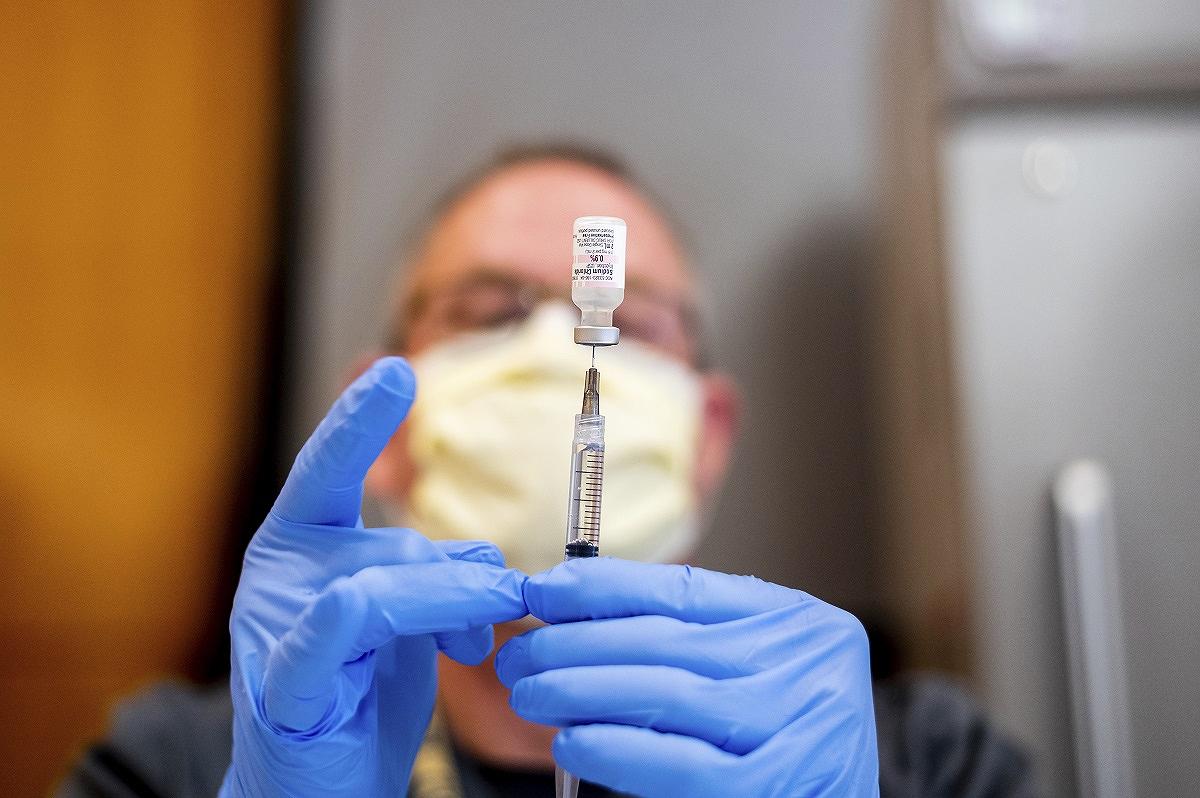
A dose of Pfizer’s COVID-19 vaccine
15:50 JST, January 17, 2021
The health ministry plans to carry out vaccinations against COVID-19 at about 10,000 medical facilities among other locations nationwide, making them function as vaccination bases, The Yomiuri Shimbun has learned.
Each base will be equipped with ultracold freezers to store the Pfizer-BioNTech vaccine, which is being reviewed for approval to be manufactured and sold in Japan. It must be stored at ultralow temperatures at about minus 75 C, as it only lasts five days when stored in a refrigerator.
The government has agreed to purchase the vaccine to cover 60 million people. If the vaccine gains approval, it is expected to be available in Japan in late February.
The vaccine needs to be thawed before use and the plan is to transport it at 2 C to 8 C to satellite facilities such as clinics in regional areas.
Other than the government’s purchase agreement with Pfizer Inc. of the U.S., it also has concluded contracts with British pharmaceutical company AstraZeneca PLC for its vaccine to cover 60 million people and U.S. biotechnology firm Moderna Inc. for its vaccine to cover 25 million people.
AstraZeneca’s vaccine can be stored in a refrigerator at 2 C to 8 C. The government will separately secure about 10,000 freezers for Moderna’s vaccine, which needs to be stored at minus 20 C.
The Health, Labor and Welfare Ministry will establish a system to efficiently administer the shots to a large number of people by using bases and satellite facilities.
For the Pfizer-BioNTech vaccine, the ministry plans to distribute about 1,500 ultracold freezers to relevant facilities by the end of February. By the end of June, about 10,000 units are expected to be distributed, with at least one unit allocated at a base in each municipality.
Under the envisaged system, vaccines will be transported to satellite facilities within three hours. With bases and satellite facilities combined, there will be one vaccination facility for every 5,000 people.
Medical personnel at satellite facilities will also be allowed to visit nursing homes to carry out vaccinations.
Vaccinations will start in late February, with priority given to frontline medical workers. Vaccinations for people 65 and older will start as early as late March. After that, people with chronic diseases will be among those to receive the vaccine.
Top Articles in Society
-

Man Infected with Measles Reportedly Dined at Restaurant in Tokyo Station
-

Man Infected with Measles May Have Come in Contact with Many People in Tokyo, Went to Store, Restaurant Around When Symptoms Emerged
-

Woman with Measles Visited Hospital in Tokyo Multiple Times Before Being Diagnosed with Disease
-

Australian Woman Dies After Mishap on Ski Lift in Nagano Prefecture
-

Foreign Snowboarder in Serious Condition After Hanging in Midair from Chairlift in Nagano Prefecture
JN ACCESS RANKING
-

Japan PM Takaichi’s Cabinet Resigns en Masse
-

Japan Institute to Use Domestic Commercial Optical Lattice Clock to Set Japan Standard Time
-

Israeli Ambassador to Japan Speaks about Japan’s Role in the Reconstruction of Gaza
-

Man Infected with Measles Reportedly Dined at Restaurant in Tokyo Station
-

Videos Plagiarized, Reposted with False Subtitles Claiming ‘Ryukyu Belongs to China’; Anti-China False Information Also Posted in Japan
























